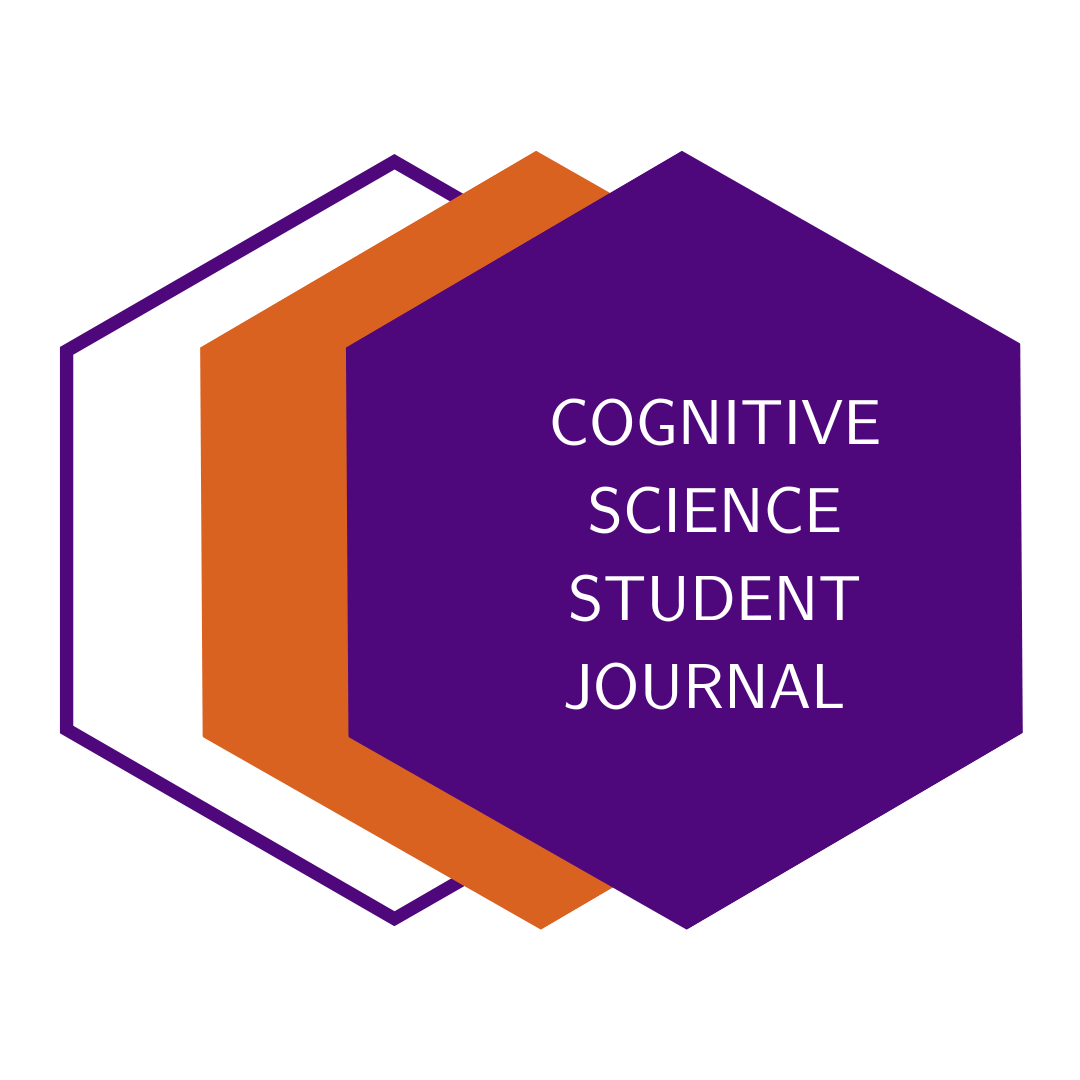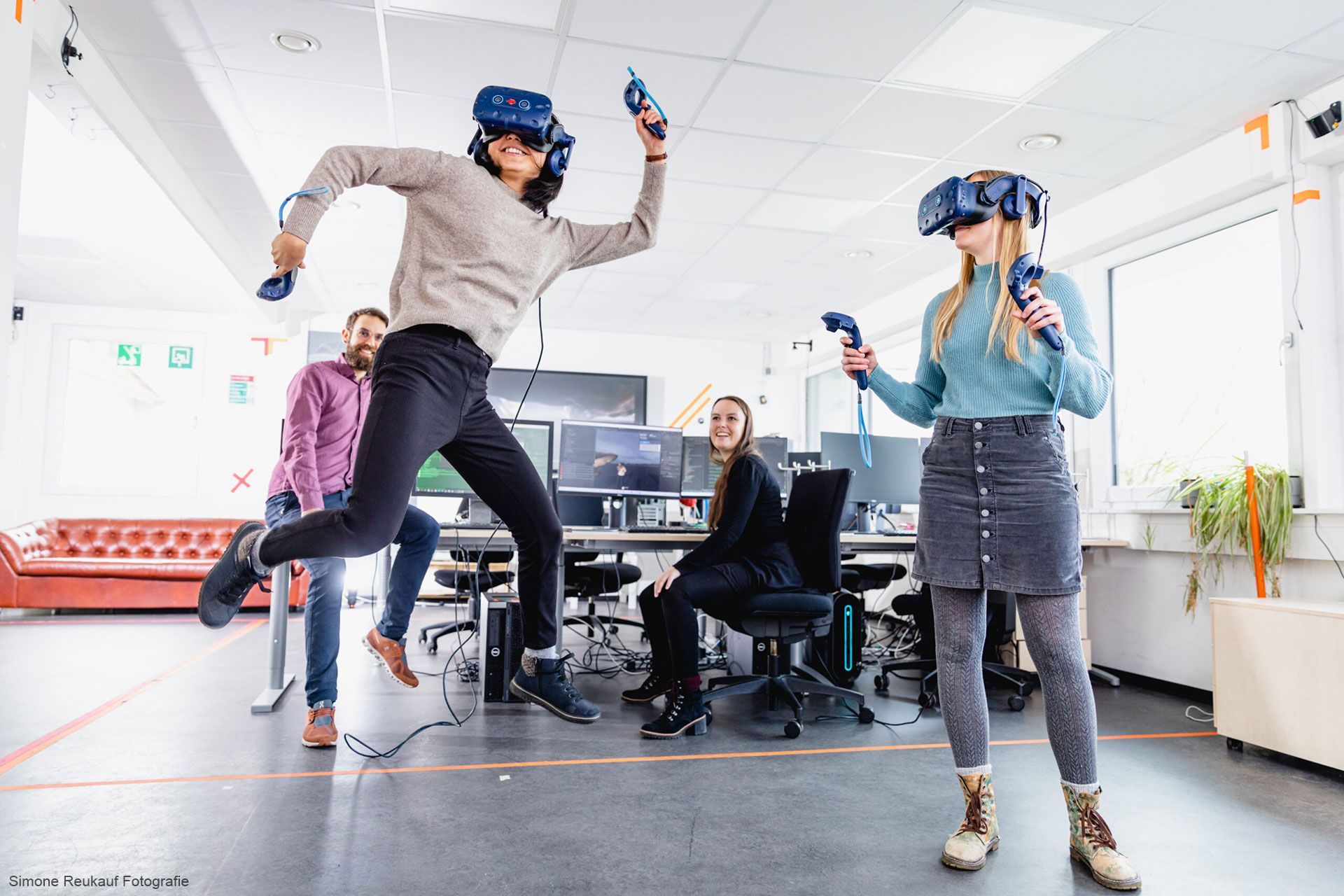What is Cognitive Science?
The primary focus of Cognitive Science is to understand how the mind works and how cognitive processes determine how we perceive the world, acquire knowledge, make decisions, solve problems, and use language. Researchers in Cognitive Science study a wide range of topics, such as investigating the reasons behind memory loss or attention deficits, contributing to building language models, and working hand-in-hand with companies to design AI solutions for decision-making.
Cognitive Scientists employ a variety of theoretical frameworks, and research methods, including behavioral experiments, brain imaging techniques (such as fMRI and EEG), and computational modeling. By integrating findings from different disciplines, Cognitive Science aims to develop comprehensive models and theories that explain the nature of cognition and its underlying mechanisms.
The practical applications of Cognitive Science span across diverse fields, including Education, Artificial Intelligence, Human-Computer Interaction, Cognitive Psychology, Neuroscience, Linguistics, and Clinical Psychology. The field continues to evolve and contribute to our understanding of human intelligence, as well as inform the development of technologies and interventions to enhance cognitive processes and address cognitive disorders.
Studying Cognitive Science in Osnabrück
Over the last decades researchers of a variaty of disciplines have worked together to investigate mental processes and representations and build intelligent systems. Some of them right here at the intitute of Cognitive Science – and you can become part of it!
Osnabrück University offers distinct advantages for studying Cognitive Science that sets it apart from other universities. Unique to the Osnabrück University is the wide variety of fields covered within Cognitive Science. Bachelor’s students build a foundation in Mathematics, Computer Science, Computational Linguistics, Neuroscience, Neuroinformatics, Philosophy of Cognition, Cognitive Neuropsychology and Artificial Intelligence. They can specialize in five of these areas. Master’s students choose two out of six areas (Cognitive Neuropsychology, Neuroscience, Artificial Intelligence, Neuroinformatics, Philosophy of Cognition, Computational Linguistics) in order to develop expertise in these. The program is also very practice-oriented. A one-year research project is compulsory for the Master’s degree. Bachelor’s students have a compulsory period abroad, which can be either a semester at another university or an internship. This and other practice-focused courses takes students from the theoretical to the practical.
Attractions of the Osnabrück University are the AI Campus (Künstliche Intelligenz – KI Kampus) and the Institute for Cognitive Science (Institut für Kognitionswissenschaft – IKW). The AI Campus combines the research and application-oriented subjects of computer science, cognitive science, business informatics and research groups from mathematics. The Institute for Cognitive Science (IKW) is a research center. It deals with questions of higher cognitive functions. At the IKW, young scientists work on research questions for a better understanding of intelligence in humans and machines.
The two Deutsche Forschungsgemeinschaft (DFG) -funded graduate programs “Situated Cognition” and “Computational Cognition” offer doctoral opportunities for students of cognitive science who want to make their way in the scientific world.
By choosing to study Cognitive Science at Osnabrück University, students benefit from a comprehensive curriculum, practical-oriented approach, and the opportunity to engage in cutting-edge research at the AI Campus and Institute for Cognitive Science, making it a standout choice for those seeking to explore the fascinating realm of Cognitive Sciences.
Fields within Cognitive Science
Artificial Intelligence
 © Simone Reukauf FotografieArtificial Intelligence (AI) aims to produce programs that simulate human intelligence by mimicking the cognitive functions of the human brain, such as learning, understanding, and problem-solving. Examples of AI include machine learning, which involves training algorithms on large datasets to recognize patterns and make predictions; deep learning, which uses neural networks to learn from large amounts of data; and computer vision, which involves teaching computers to interpret visual information.
© Simone Reukauf FotografieArtificial Intelligence (AI) aims to produce programs that simulate human intelligence by mimicking the cognitive functions of the human brain, such as learning, understanding, and problem-solving. Examples of AI include machine learning, which involves training algorithms on large datasets to recognize patterns and make predictions; deep learning, which uses neural networks to learn from large amounts of data; and computer vision, which involves teaching computers to interpret visual information.(Computational) Linguistics
 © Simone Reukauf FotografieLinguistics is a vast field that encompasses the scientific study of language and its structure, including the study of morphology, syntax, phonetics, and semantics. It is an interdisciplinary field that draws on knowledge from various disciplines such as cognitive science, psychology, anthropology, computer science, and philosophy. In the field of linguistics, researchers use various techniques to study language processing. For example, EEG (electroencephalography) and fMRI (functional magnetic resonance imaging) are used to understand the neural basis of language processing. On the other hand, computational linguistics uses NLP (natural language processing) techniques to develop algorithms and models for processing natural language data using computers.
© Simone Reukauf FotografieLinguistics is a vast field that encompasses the scientific study of language and its structure, including the study of morphology, syntax, phonetics, and semantics. It is an interdisciplinary field that draws on knowledge from various disciplines such as cognitive science, psychology, anthropology, computer science, and philosophy. In the field of linguistics, researchers use various techniques to study language processing. For example, EEG (electroencephalography) and fMRI (functional magnetic resonance imaging) are used to understand the neural basis of language processing. On the other hand, computational linguistics uses NLP (natural language processing) techniques to develop algorithms and models for processing natural language data using computers.Neuroinformatics
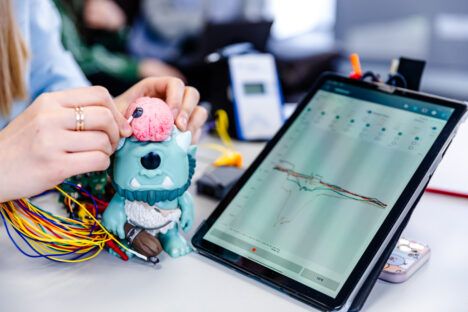 © Simone Reukauf FotografieNeuroinformatics focuses on the development and application of computational tools and techniques for analyzing and modeling brain data. It combines neuroscience, computer science, and data analysis to advance our understanding of the brain and its cognitive processes.
© Simone Reukauf FotografieNeuroinformatics focuses on the development and application of computational tools and techniques for analyzing and modeling brain data. It combines neuroscience, computer science, and data analysis to advance our understanding of the brain and its cognitive processes.
Neuroinformatics involves the development of databases, software tools, and algorithms for organizing, storing, and analyzing neuroscience data.
By harnessing the power of neuroinformatics, researchers can uncover patterns, relationships, and underlying mechanisms of cognitive processes. It allows for a more comprehensive understanding of the brain and provides a foundation for developing computational models that simulate and predict cognitive functions, aiding in the advancement of cognitive science as a whole
Cognitive Neuroscience
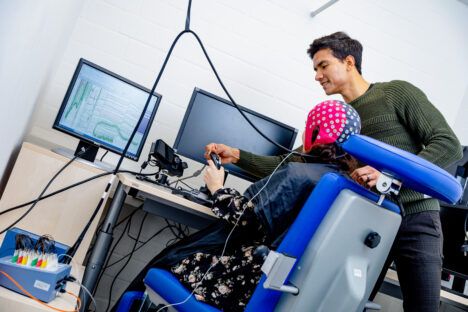 © Simone Reukauf FotografieCognitive Neuroscience studies how different areas of the brain support specific cognitive processes and how they interact as a network. The main questions that cognitive neuroscience seeks to answer include how cognitive activities are affected or controlled by neural circuits in the brain, how different areas of the brain support specific cognitive processes, and how these areas interact as a network.
© Simone Reukauf FotografieCognitive Neuroscience studies how different areas of the brain support specific cognitive processes and how they interact as a network. The main questions that cognitive neuroscience seeks to answer include how cognitive activities are affected or controlled by neural circuits in the brain, how different areas of the brain support specific cognitive processes, and how these areas interact as a network.Philosophy of Mind
 © Simone Reukauf FotografiePhilosophy of Mind is a branch of philosophy that studies the nature of mind and its relationship to the body. It addresses issues such as the mind-body problem, the hard problem of consciousness, and the nature of mental states, events, functions, and properties. It intersects with other fields such as neurobiology, computer science, and psychology, and extends its reach to profound philosophical inquiries concerning the essence of death, free will, personhood, emotion, perception, and memory. Also, It has been explored by different schools of thought such as analytic philosophy, phenomenology, and existentialism. The mind-body problem is one of the central issues in philosophy of mind. It asks how mental states such as thoughts, beliefs, desires, and emotions are related to physical states such as brain states.
© Simone Reukauf FotografiePhilosophy of Mind is a branch of philosophy that studies the nature of mind and its relationship to the body. It addresses issues such as the mind-body problem, the hard problem of consciousness, and the nature of mental states, events, functions, and properties. It intersects with other fields such as neurobiology, computer science, and psychology, and extends its reach to profound philosophical inquiries concerning the essence of death, free will, personhood, emotion, perception, and memory. Also, It has been explored by different schools of thought such as analytic philosophy, phenomenology, and existentialism. The mind-body problem is one of the central issues in philosophy of mind. It asks how mental states such as thoughts, beliefs, desires, and emotions are related to physical states such as brain states.Cognitive Psychology
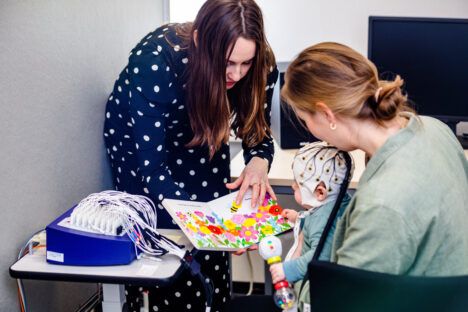 © Simone Reukauf FotografieCognitive Psychology is the scientific study of the mind as an information processor. It concerns the way we collect sensory information, make sense of it, and are ultimately able to use it to our advantage. The main questions that cognitive psychology seeks to answer include how people perceive, learn, remember, think, speak, and solve problems.
© Simone Reukauf FotografieCognitive Psychology is the scientific study of the mind as an information processor. It concerns the way we collect sensory information, make sense of it, and are ultimately able to use it to our advantage. The main questions that cognitive psychology seeks to answer include how people perceive, learn, remember, think, speak, and solve problems.